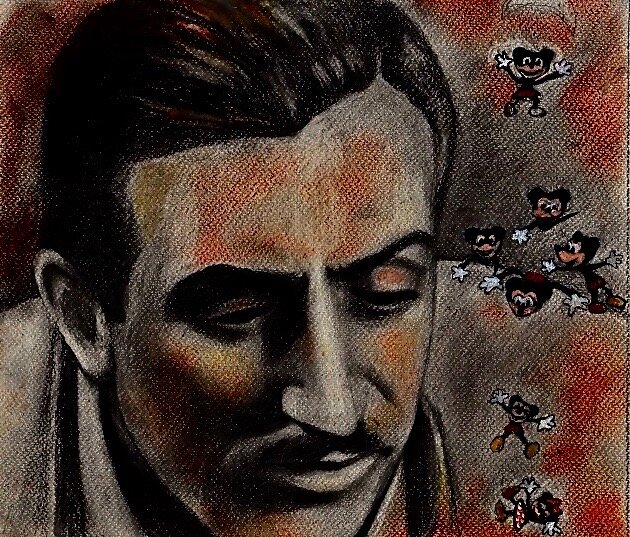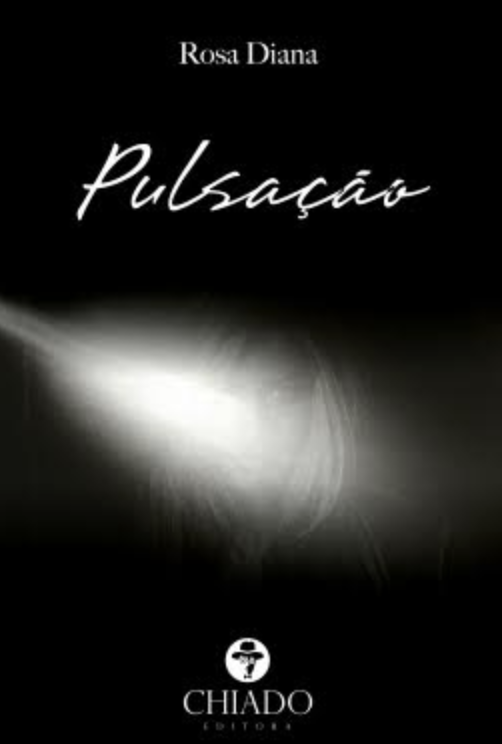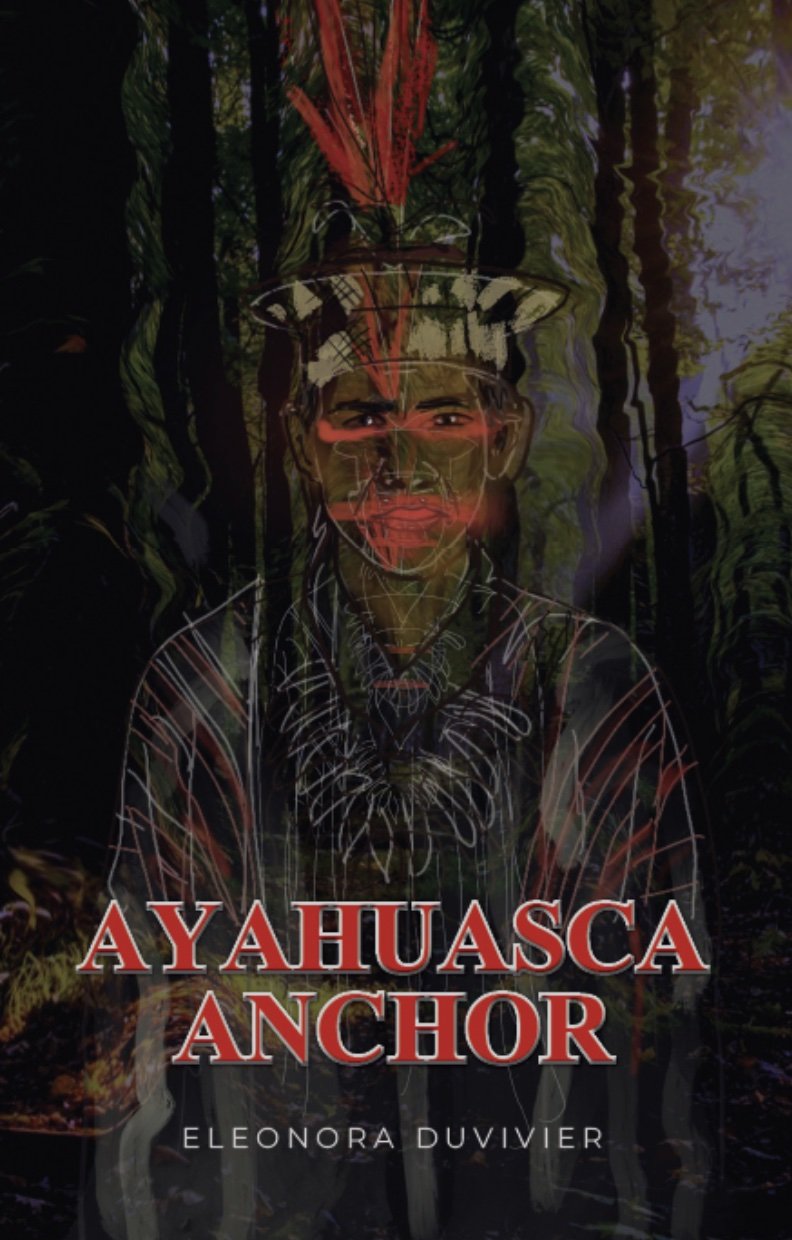Apollo’s Lover
ABOUT THE BOOK
Apollo’s Lover is a fact-based novel that reaches into the heart and soul of adolescence, into the innocence of youth, and the spirituality of young love.
The story is about the worshipping of a fourteen-year-old girl (the narrator) for a handsome, enigmatic, young French man who unexpectedly starts teaching at the school she attends.
Written in the first person, the narrator, a young woman named Alicia, takes us back to her teenage years when, at age fourteen and a student in a French-Brazilian school in Rio de Janeiro, she falls in love with a handsome new teacher.
Shy and protected, she adores him from afar, until the day her friends realize that he returns the attraction and, in a moment of adolescent jealousy, they commit a malicious prank that results in her showing up at his apartment. What follows is horrifying and changes the girl’s life forever. It unhinges her, and she is placed in a sanatorium. It is there that she faces the trauma, while being guided toward emotional healing.
First written in Portuguese, Apollo’s Lover is a powerful and poetic story, touching on one girl’s struggle to discover herself and the meaning of love.
REVIEWS
This book marked my adolescent years. I grew up in a bilingual environment and I couldn’t help to identify myself with some parts of the book, the platonic love between the teacher and the student, growing up in a big city like Rio, etc. So far, I grew fond of the whole scenario.
- Lu Ni Laidheanáin, Goodreads user
“The taste of blood wouldn’t leave my mouth. Still there, reminding me that I should not have done what I did, it woke me up in the middle of the night, and i decided to go over everything that had happened so long ago.”
-Apollo’s Lover

From Mars to Marceline
ABOUT THE BOOK
"This text is mainly the spelling out of what felt to me like a physical experience of spirit. The question of interaction is analyzed in different stages, in its connection to fiction as something intrinsic to technology. It has, as point of departure and reference, the pioneering steps taken by Walt Disney along the path of joining technology to different entertainment media. I am approaching several aspects of American pop culture and American life as it relates to technology, viewed by the common denominator of interaction and fiction. The topics are written in a confessional as well as reflection-oriented style, so that the element of particularity and passion is deliberately preserved, along with objective questioning."
REVIEWS
This ebook is worth acquiring. Better then never, though i am quite late in start reading this one. You will not truly feel monotony at any time of your own time.
LORENZ VANDERVORT
Eleonora Duvivier chronicles intersection of Technology, Psychology and Mysticism
Well researched and grounded by personal experience and affection for its subject, From Mars to Marceline is at once a thesis, reflection and confession for Duvivier. This highly insightful and inspirational nonfiction explores some of the fundamental ways in which Disney affects our world today. Topics include aspects of technological life, which join fantasy and mechanical processes, the ever-growing dimension of fiction in everyday, trivial life and in our interactions, and the human mind’s capacity for mysticism, faith and heroism. In her introduction, Duvivier writes,
“Disney animation prophetically inaugurated the relativity of the real in everyday life, that is, in immediate sensory perception. Until then, fantasy was mediated. Reading demanded a withdrawal into thought, and watching a play, or a live action movie, required an understanding of the story. Fantasy was expressed, but not really seen. What was directly visible was either reality or a reproduction of it, like the shape and movement of flesh and blood actors. With Disney animation, fantasy became immediate and alive, more colored and second nature feeling than reality. In the directness of its convincing power, Disney animation became physical and soul inspiring.
“Disney’s illusion of life is life regardless of, or above reality. The immediacy Disney gave fiction meant the establishing of life over everything, like a consecration of it. That is why it felt like sheer reassurance. Today, with virtual reality, fantasy can be more sensory invasive than life itself.”
Duvivier argues that Disney’s creativity embodies the American spirit by expressing the simultaneous control and liberation derived from artifice. From Mars to Marceline is a powerful tribute to the lasting influence of Disney’s legacy, revealing the ever-multiplying ways in which his ingenuity and authenticity continue to inspire us and shape our collective identity.
-Review by Publisher
“ In his relationship to Mickey, Walt Disney is the personification of a sacred bound: the love between creator and creature.”
FROM MARS TO MARCELINE - Disneyssense

Disneyssense
about the Book
“Joining the ranks of the great thinkers who have attempted to discover the meaning of life for eons, philosopher Eleonora Duvivier analyses the mystical and the metaphysical through the lens of an unusual subject: Walt Disney.
Duvivier’s Disneyssense is an inspirational blend of Disney history, philosophy, and pure Disney love. Duvivier compares Walt Disney to such influential thinkers as Socrates and Soren Kierkegaard. She credits Disney with merging the mystical with the corporeal, in new forms of entertainment that incorporate all of the five senses.
Duvivier argues that Disney’s revolutionary theme park attractions were the first to enable spectators to immerse themselves in stories as they came to life all around them.
Duvivier’s examination of Disney’s artistry combines rigorous analysis with unabashed adoration for Walt Disney the man and for Disney’s creations, which continue to delight the young and the young at heart around the world. Her sometimes ethereal writing style is fresh and unique, as the following excerpt from Disneyssense reveals: “Disney’s establishing personality in animation, that is, personality over the laws of physics, logic, or mere randomness, is a proclaiming of soul over matter, in the same way that his reinvention of life as a visible, moving fantasy, asserts life over reality”.
Duvivier first fell in love with Disney as a child. When she was six, she lived for a year with her grandparents in her native Brazil, while her parents studied art in Europe. As a student in a catholic school in Rio de Janeiro, the young Duvivier felt traumatized by the school’s emphasis on penitence and fear of hell as the path to Heaven. Relief came in the form of her first encounter with Disney animation.
“Torn between the ethical fear of falling short and panic of the devil” she recalls, “I was, on a blessed afternoon, taken to the movies to watch Sleeping Beauty. It was the first time I confronted the big screen and, all of a sudden, coming from the dark, all the colors of the rainbow revealed to me not just the beauty and joy of the moving Disney characters, but the victory of the good for the sake of love; the constantly present happy ending.”
The power of Disney animation had a profound and lasting effect on Duvivier. While en route to Boston University to start college, she made her first trip to Walt Disney World.
“To be in a context in which one can let go is in itself a bliss. It corresponds to a feeling of rediscovery; it is abandoning and reencountering at the same time.”
Disneyphilles relate to the emotions and ideas Duvivier articulates so eloquently.
Duvivier studied philosophy in the US, England, and Brazil, but left academia to pursue her primary interest, Disney.
“My looking at Disney philosophically regards more my introspective temperament, which is naturally questioning of life in general, than a conscious decision”, she explains. “It matured when I finally read Walt Disney’s biographies, as well as books on Disney animation, and came to see the affinities between Walt’s conduct and temperament with everything he did.”
Unlike traditional biographies of Walt Disney, Disneyssense seeks to capture the spirit of Disney on a metaphysical level. Duvivier courts Disneyphilles from all walks of life with her mystical Disney writing.
Placing the man behind the mouse on a pedestal, Disneyssense is sure to please them all.”
Peggy Macdonald Demosthenous
“With the storytelling rides of Disneyland, Disney not only invented interaction with fantasy, but with contemplation. A traditional Disney storytelling ride is stage to be watched, to be part of, and to be awed by at the same time. Stage becomes life, physical reality becomes fantasy, contemplation merges with action.”
-DISNEYSSENSE

Pulsação
Reviews
“Dizem estarmos fazendo uso de apenas 5 a 10% do nosso cérebro. E (se alguém já não disse) digo eu que também apenas igual variação de porcentagem de humanos faz uso de sua liberdade (o único bem de real valor). Eleonora, assim como poucos outros portadores do sinal, está inserida nesse valor. De fato, ela faz uso que raia o abuso - pleno e irrestrito - dessa sua liberdade. Com inocência e ingenuidade, com pureza (o que é isso?). E só por isso ela já ganhou o dia, razão porque agora quer ver a noite. Livros há (os meus, por exemplo) que só têm alguma graça e deles auferimos algum prazer quando lidos de enfiada (e descartados em seguida). Outros, como os bons vinhos, precisam ser saboreados gole a gole. É novamente o caso de Pulsação. E foi o que eu fiz com os seus contos - li um por dia. E não por outra razão qualquer, senão que por medo de a leitura acabar logo e eu ficar à deriva e, pior, naufragar, afundar, me perder.
Nos tempos em que as coisas não mais existem, apenas as prostitutas palavras, Eleonora, que conhece o peso destas, seu volume e sua semântica, faz a sua e a nossa catharsis e nos acolhe e faz renascer do seu cálido e úmido útero. Sinto-me de banho tomado e alma lavada.
Rejubilemos! Nasceu uma ímpar flor de lótus. Nos lodos.
-Alexandros Evremidis Papadopoulos- crítico de literatura
A King In His Innocence
about the Book
Inspirational coffee table book, with poetic/philosophic reflections on my son- since he was first born until going to college- on childhood in general, and on motherhood, with illustrations and photographies.
Preview
“Proust at the Airport”, one of the stories of "Ayahuasca Anchor", touches on big themes in a way that's delicate and fitting for the passage itself. The introductory texts, where Eleonora talks about emotions and gives them personification, were also intriguing to me.
My favorite one is "The World before the Word". I haven't read anyone that has integrated so much introspection and philosophy into a memoir-type collection. That segment really shines in that for me. I especially enjoyed her talking about the part when her mother goes swimming in the ocean while she and her brother are sitting on the beach. And how she goes on a little later and talks about the relationship between individuality and the attempts to get to authentic objectivity by shattering our locked sense of subjectivity through ayahuasca. Very cool. Eleonora’s writing reminded me of Martin Heidegger's passages about authenticity and individualistic subjectivity in Being and Time.
- Alexandra Furtado

Ayahuasca Is.
Exerpt
In flashbacks of plenitude, Ayahuasca unearthed, for me, the purity of sensation and the immediacy of feeling, the time when judgment hadn’t yet poked its unforgiving head; the innocence of a paradise, whose horizons mix with those of imagination, and whose skies reach the depths of our heart. Like all that blueness above my face when learning to float in Dad’s arms; letting the water become a cradle to my small body.
Dad had a way with nature, a quasi religious admiration for the spontaneity of irrational life. He seemed to be able to sense and transmit, beyond the call to survival, the existence of an absolving wisdom in the instinctual dimension. I was a toddler, when he taught me to “let go”; to place myself humbly and fully before what is beyond me, like the magic of floating by the falls that filled the pool of our family estate in the mountains; the liquid, half- moon shaped surface, that was welcoming rest to the dropped leaves from the encircling woods. The almost blinding, sunny sky, so high above, shone through the whiteness of the rolling down water in the middle of the rock by my side, and the fluorescent green of the ascending pine trees I saw from the pool, on both sides of the cascade, went all the way to the summit of the rock, racing to greet the sky. The sight of the waterfall and the pine trees is a recurrent image of relief to me, one of the temples life raised in my soul, that when I least expect, envelops my being with a feeling of return and rediscovery, like a primordial womb.
On my back, in the cold water, with legs and arms half-submerged and defensive, I was counting on the support of Dad’s arms to not sink, and he told me to relax...I trusted him more than his arms, and he slowly withdrew them from under me, letting the water, with my trust, do its job; work the miracle of becoming, in all its softness, a firm nest to my body, a response to my letting go.
That was nature, for Dad. Not just something to be tamed, but the inspiration for an intuitive trust, which allowed him to know when to withdraw his arms; when to efface himself, so I could let go of him and of myself too.
Beyond Father’s materialistic hangups, like the biological determinism he subscribed to, he hinted, in spite of himself, that there was something else in natural creation; a whisper from the transparency of the water, a silent lullaby, that is hidden in the elements and in the flow of life, for those who are capable of hearing the voice of silence, of reuniting with an innocence that no conventionality can stain, no law can tame, and no words can limit.
Mercifully, among many revelations, Ayahuasca, the sacred Amazonian brew, reawakened this primordial relationship I had with the world before the word; the mediation of social conventions, the acquaintance with duty, the knowledge of right and wrong, and all this “crap” that weakens, distances and finally breaks the original communion one naturally has with one’s environment. Ayahuasca brought back to me the time when I was at one with my surroundings, like the beach of Copacabana, in front of which my first home was, and the beauty of the lands my Grandfather owned all over the place. Everything in that world was permeated by the scent of orange trees from Grandpa’s orchards; the freshness of the waterfall I learned to float by, or the presence of the sea, just across my window.
My paternal Grandfather was Emanuel, the beloved family patriarch who was also a very successful lawyer, a politician, and one of the largest landowners in the country, something we benefited from. The feeling of being wealthy had much less to do with the power to purchase objects, or the access to comfort- our family was rather frugal- than with the lack of limits to the earth we stepped on, or to the distances we looked at. It was a feeling of belonging to, rather than possessing; being welcomed by, rather than in control of.
Endlessness, not opulence, shaped our universe.
Nothing had to be measured, accountable, or made to fit within the limits of lines and numbers. Ayahuasca made me aware that I had not only experienced such a world, but merged, in essence, with it. It made me realize I experienced communion, and its seal was forever imprinted upon my soul, from the remoteness of a time that had no room for rationality; that was too pure for the relativizing, comparing, and delimiting type of thinking that eventually comes to shape our perception of reality.
Ayahuasca Anchor
From a ceremony under the moon in the Amazon jungle, to getting stopped at airport security for traveling with the work of Marcel Proust, these inspirational texts share insights from experiences lived during the new age of plant medicine. Addressing family love, awe of animals, Proustian wisdom, the generosity of ayahuasca, the sacrament of the Amazon, or unfolding into myths that trigger metaphysical questions, the subjects are different and yet related, always dancing with the spiritual dimension of life. All the segments are distilled into works of visionary art by Edgar Duvivier, the author’s brother, excepting the two last drawings, which are made by the author.








